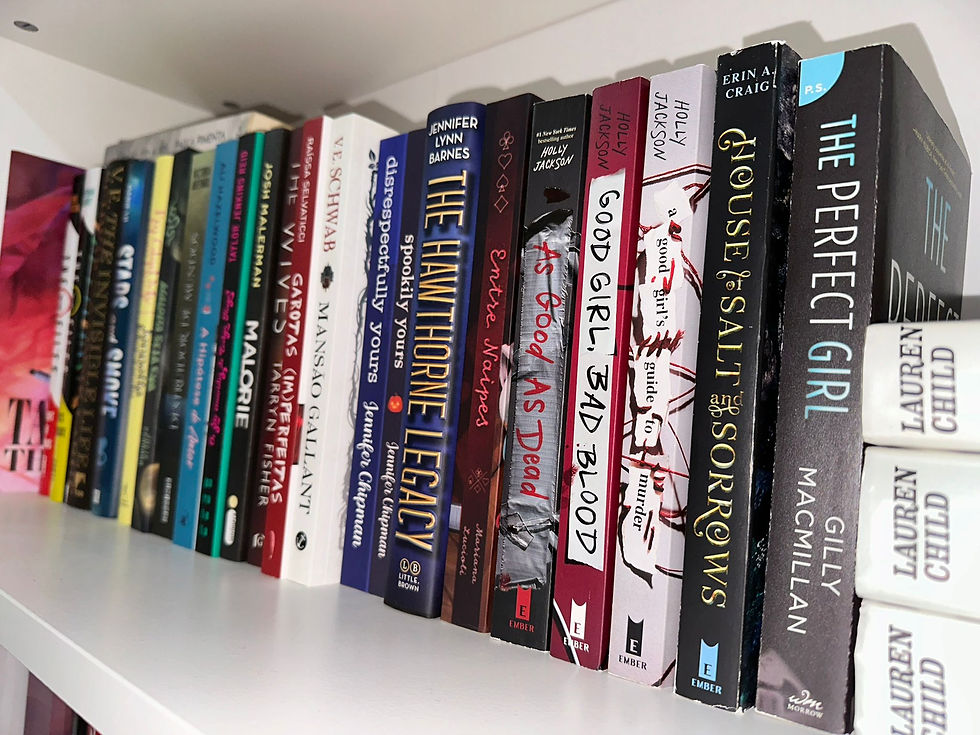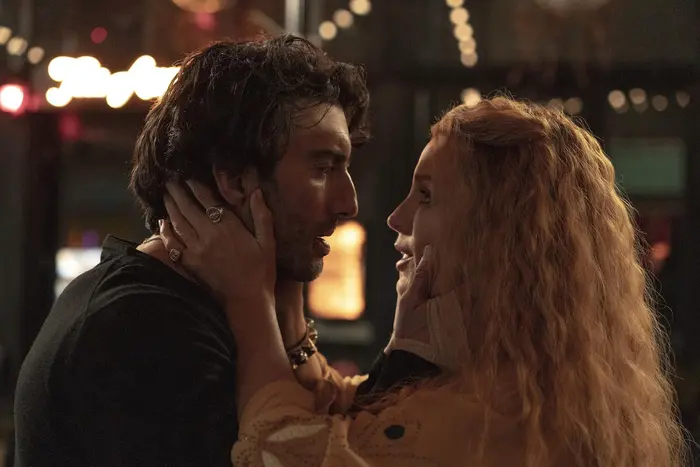Review: Twisters (2024)
- Gage Huff
- Jul 22, 2024
- 7 min read
Updated: Jul 30, 2024

Released: July 2024
Director: Lee Isaac Chung
Reviewer Rating: 7/10
“Twisters” takes a “Top Gun Maverick” style approach in its reimagining of a recognizable intellectual property that most people are only vaguely aware of. “Twister,” like the first “Top Gun,” is mostly either fondly remembered by those caught up in the zeitgeist of the time or enjoyed semi-ironically as a cultural artifact of a bygone, comparatively innocent era. Like the surprise smash hit of 2022, “Twisters” takes the loose, foundational structure and archetypes and punches up pretty much every detail in the narrative (the "story by" credit received by “Maverick” director Joseph Kosinski reveals this is no coincidence), and pairing that with some sturdy craft to ensure a widely accessible summer movie event.
This isn't as good as “Top Gun Maverick”, not reaching the heights of that film's perfected familiar story beats and broad sentimentality plus a marriage of genuine star/spectacle driven entertainment. It also isn’t the same vein of legacy sequel, with zero returning characters and the only hard callback being an old, rusty Dorothy unit from the first “Twister” that seemingly came after Bill and Jo’s original test run (any other reference is purely contextual). In fact, the integration of Dorothy provides an apt analogy for how “Twisters” updates and improves upon its predecessor.
When first unveiled leading up to the film's first big storm sequence, a character points out its now faulty mechanics and questions why it’s even necessary they use it. A team member then defends the past its prime tornado research system by saying something along the lines of, "It's old, but it's been field tested, we know it works." Yes, at this point, “Twister” is getting up there in years, coming up on its 30th anniversary, and it definitely feels quaint when compared to modern blockbuster standards, but the broad strokes of its story have proven to be successful before.
Times have changed a lot too. It's not enough to promise audiences convincing special effects and recognizable to get butts in seats, people now need to be convinced that their guileless spectacle is "important," which usually translates to dangling as many comic book characters or pop culture icons in front of their faces and framing every film as "the chapter that changes everything" or "the epic conclusion" to some franchise that should have ended long ago. The director Lee Isaac Chung, making the rare successful jump from Oscar nominated indie drama to big budget studio filmmaking, and by extension screenwriter Mark L. Smith, responds to this call with a less cynical answer: they're gonna make you care alright, but with a story and characters that, while far from perfectly realized, are worth caring about.
Immediately we're given a stronger hook for why our protagonist, Kate (Daisy Edgar-Jones), has fallen out of love with storm chasing. While Bill simply matured out of it, compounded by marital struggles with his storm-chasing wife pushing him further away, we're shown how Kate lost most of her team (including her boyfriend) to a particularly nasty tornado while testing a chemical agent of her design intended to decrease its intensity, which causes Kate to feel responsible on top of the already massive psychic trauma an event like that would cause.
This backstory of tragic loss motivating a professional to drop out of their field is admittedly cliche, but it's hard to argue that it's less effective than just growing tired of storm chasing because of an exhausting divorce, and Edgar-Jones helps to sell that fear and apprehension that plagues Kate with the death of her friends still haunting her. This also makes it much more rewarding when she eventually does regain her drive for studying tornados, since the hurdle she must overcome to get to that point is a significantly greater one.
This gets into the main storm-chasing rivalry that's again based on the one which fueled “Twister”, the down to Earth chasers fueled by heart, thrill-seeking, and a desire to make a difference and the technologically advanced corporate chasers who are "only in it for the money." Only Chung and Smith initially present us with an interesting inversion to this set-up: Kate and her old friend Javi (Anthony Ramos), the only other one to survive the dire EF5 tornado (the strongest level a tornado can achieve) since he stayed back to analyze data, work for the high tech professionally funded Storm Par team, while the independent and reckless Tyler Owens (Glen Powell) and his redneck crew are framed as the antagonists.
These aren't dorky scientists like Jo and her team, though Tyler did study meteorology at university and the rest are sufficiently educated in various tech and weather science, but lively tornado influencers from Arkansas selling various merchandise and recording themselves as they hunt down tornadoes and shoot fireworks in them. Though like the lovable group of recognizable 90s faces, these self-proclaimed "tornado wranglers" are just as infectious with their scrappy energy and peppy banter, and also brought to life by talented personalities including Brandon Perea from "Nope", Sasha Lane from “American Honey”, and “How to Blow Up a Pipeline”, and Katy O'Brien from “Love Lies Bleeding”.
Of course, at the center is Powell, fresh off his incredible star-making turn in “Hit Man”, who's really playing into all the performance tics of Tom Cruise, after befriending him during “Maverick”, with the larger than life persona, near constant devilish grin, and an immense cockiness that would be grating if he weren't so damn charming, but with a more empathetic side that reels you in as he opens up later on. Eventually, though, Kate comes to side with Tyler and his operation when she comes to learn of their altruistic motives and some shady business deals Storm Par is participating in.
Chung, who familiarized himself with heavy VFX work after working on The Mandalorian as a for hire job, handles all of the storm action and suspense sequences impressively well, whether that be the propulsive driving through dirt roads and fields as hail and rain pelts down, or scrambling to find shelter as a monster tornado ravages a town. He knows how to keep these scenes overwhelmingly chaotic without going overboard and making them obnoxious, and striking that balance between excitement and fear while determining when to lean more into either.
Tyler rocketing toward a tornado and blaring country music as his hype man Boone enthusiastically films him is super entertaining, but a later scene of him crawling across an empty pool trying to save a man from getting sucked up by a raging storm (the end of a pretty well assembled simulated oner) may be one of the more tense theater experiences this year, and that's not mentioning the spectacular finale that goes from a gargantuan twister sucking up an oil refinery in an apocalyptic fire before an effort is made to evacuate an active farmer's market to a nearby shelter. He takes a semi-Spielbergian approach when it comes to establishing scale, portraying the twisters with a mix of awe and horror, efficiently tracking the cause and effect of destruction, but also in its humanist sensibilities (which can be traced back further to Hawksian communities and Fordian collectivism) that ends up being the film's unexpectedly stand out quality.
As the film develops there's a lovingly presented vision of small town Americana that the film uses to direct focus towards a touching, if slightly on the nose or easy to root for, advocacy of aiding victims and protecting humble communities through storm research and prevention, an attitude ambiguously expressed in the first “Twister” but is more clearly articulated here, notably through the way the film expands on its corporate villains.
Along with explaining in interviews how he subtly integrated references to climate change (a few scenes feature meteorologists on TV who can be clearly heard proclaiming this as one of the worst tornado seasons on record), the main investor for Storm Par is revealed to be a land baron who uses their storm tracking tech to swoop into destroyed towns to buy up all their land, slightly grounding the film into a reality of real estate exploitation and making the human "threat" more tangible than the nondescript boogeyman of Cary Elwes and his crew from “Twister”.
The ideology Chung's pointing towards isn't made abundantly clear, nor is investigated to the degree that would turn off any audience members who fall on the opposite end of the spectrum, but in a film like this I don't expect it to be, and those who are socially conscience enough and are familiar with “Minari” and its portrayal of a lower class family struggling to navigate the financial difficulties of sustaining themselves in America should be able to pick up on what he's suggesting, which is refreshing enough for a production like this.
However, “Twisters” does often find itself stumbling when straining to stay as accessible and straightforward a crowd pleasing experience as possible. Not that those qualities are inherently bad, just that a lot of efforts taken in the script come across overly simplistic and thuddingly obvious which threatens to derail a lot of what the film sets up, though the actors are able to handle it well enough to still generate some pathos. I thought the score was extremely inconsistent too; some of the more rustic sounding tracks that matched the reason I enjoyed, but a lot of it is the kind of generic, manipulative stuff you expect to hear in the most insipid of films, another sizeable hindrance that can make it difficult to become attached to the film.
While the digital effects are unsurprisingly a huge improvement over the first film and are likely to age more gracefully, the practical elements that “Twister” succeeded at with its physical debris is missed here as entirely CG objects and vehicles are thrown about, but this is amended by Chung's appreciated choices to not only shoot on location but to use 35mm to give the film substantial texture; I found myself regularly grateful for the presence of visible grain. Rough and repetitive in some regards, but a solid and reliable piece of popcorn filmmaking that's easy to watch but still respects your intelligence, and kind of the one thing theaters need right now (my audience was eating it up). Movies are back! Glen Powell summer is real!




Comments